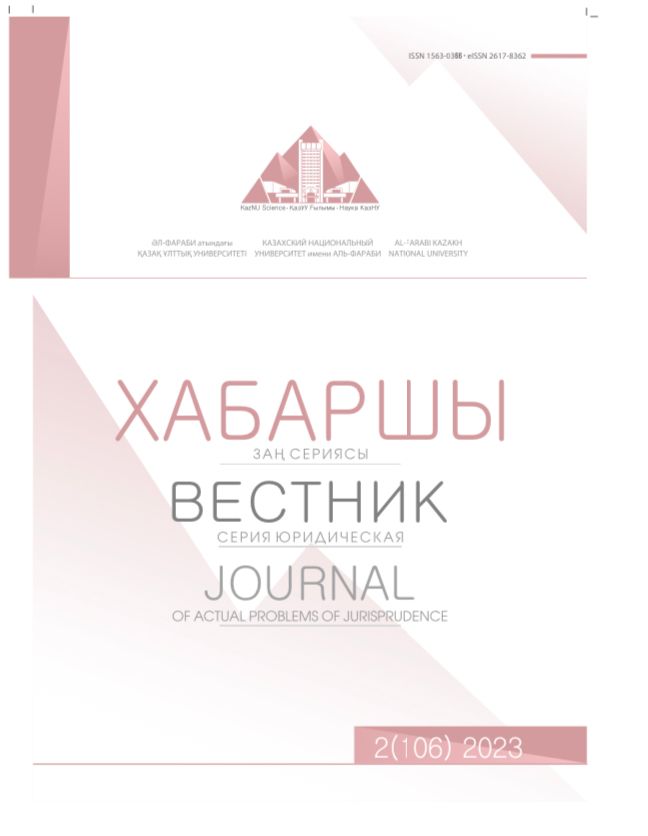Жасанды интеллект дәуіріндегі қазақстан республикасында адам және азаматтардың денсаулыққа құқығын қамтамасыз ету
DOI:
https://doi.org/10.26577/JAPJ.2023.v106.i2.02Аннотация
Мақала жасанды интеллект дәуріндегі адамның денсаулыққа құқықтарын реттеу тәсілдерін зерттеуге арналған. Қазақстандық заң ғылымында құқықтық сипаттағы мәселелердің, жасанды интеллектті құқықтық реттеудің басқа да мәселелерінің ғылыми өңделуі жеткіліксіз. Сандық денсаулық сақтау технологиялары Тұрақты даму мақсаттарына қол жеткізу жолында сапалы медициналық көмек көрсетудегі проблемалар мен олқылықтардың маңызды шешімі ретінде жарияланды. Дегенмен, олар жеке өмірге және құпиялылыққа қауіп төндіреді, бұл кемсітушілік пен зорлық-зомбылыққа әкеп соғуы мүмкін, соның салдарынан денсаулық, тұрғын үй, жұмысқа орналасу, жиналу, пікір білдіру бостандығы, негізсіз қамаудан қорғау, дене автономиясы мен қауіпсіздік құқықтары бұзылады. Кең мағынада айтқанда, тиісті жоспарлаусыз және қауіпсіздік шараларсыз цифрлық денсаулық сақтау технологиялары мұндай араласуларға қол жеткізе алатын және қол жеткізе алмайтындарды ажырататын цифрлық теңсіздікті кеңейту арқылы денсаулық саласындағы теңсіздікті арттыруға ықпал етуі мүмкін. Бұл мақала цифрлық технологиялармен байланысты денсаулыққа келетін негізгі зияндарды, сондай-ақ оларды пайдалануға байланысты этикалық және адам құқықтары стандарттарын сипаттайды. Ол сонымен қатар цифрлық денсаулық сақтау технологияларымен байланысты тәуекелдерді азайтудың бірнеше стратегиясын ұсынады және жауапкершілік тетіктерін талқылайды.
Түйін сөздер: адам құқығы, жасанды интеллект, денсаулық құқығы, ДДСҰ, құқықтық реттеу.













